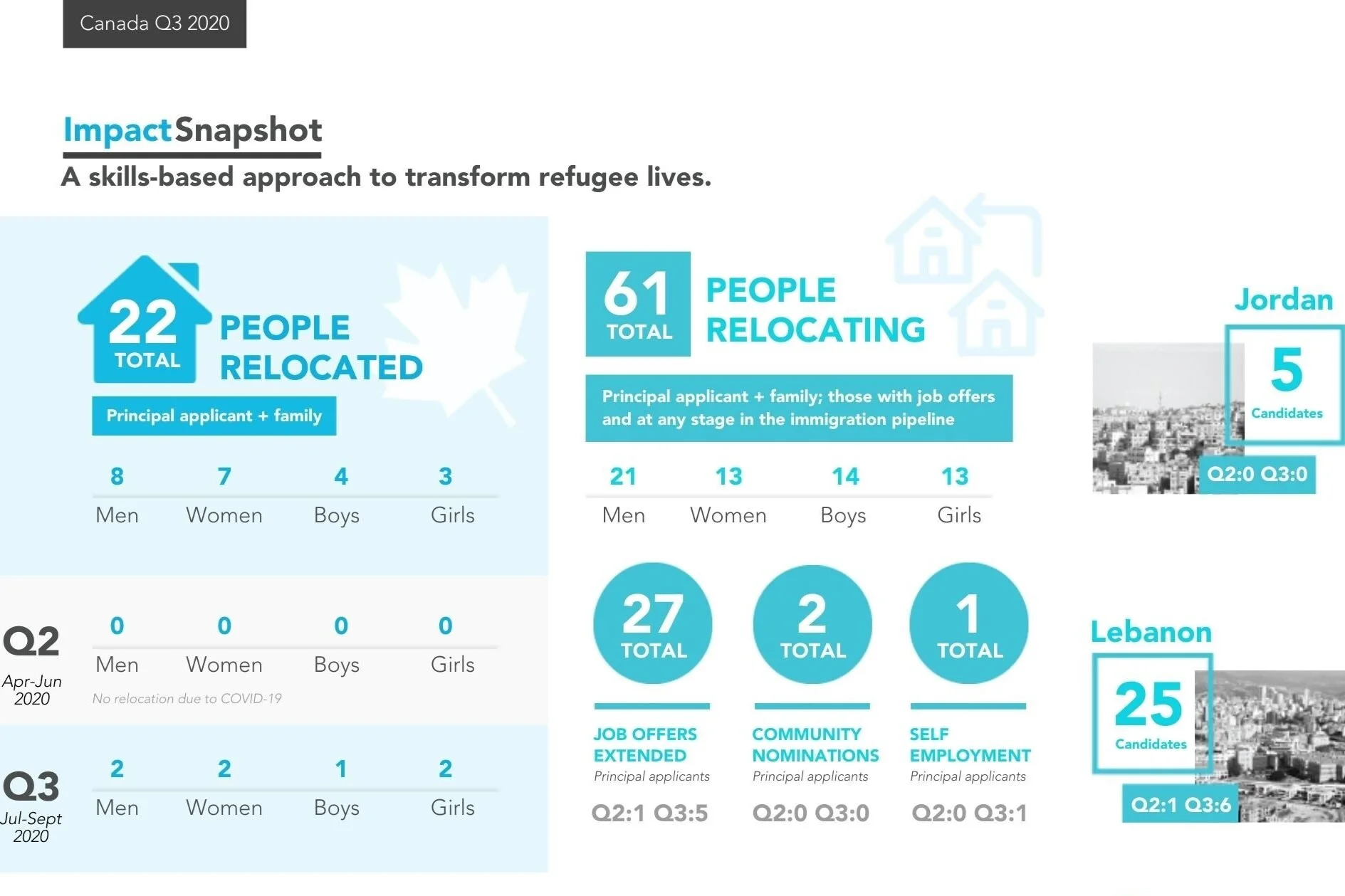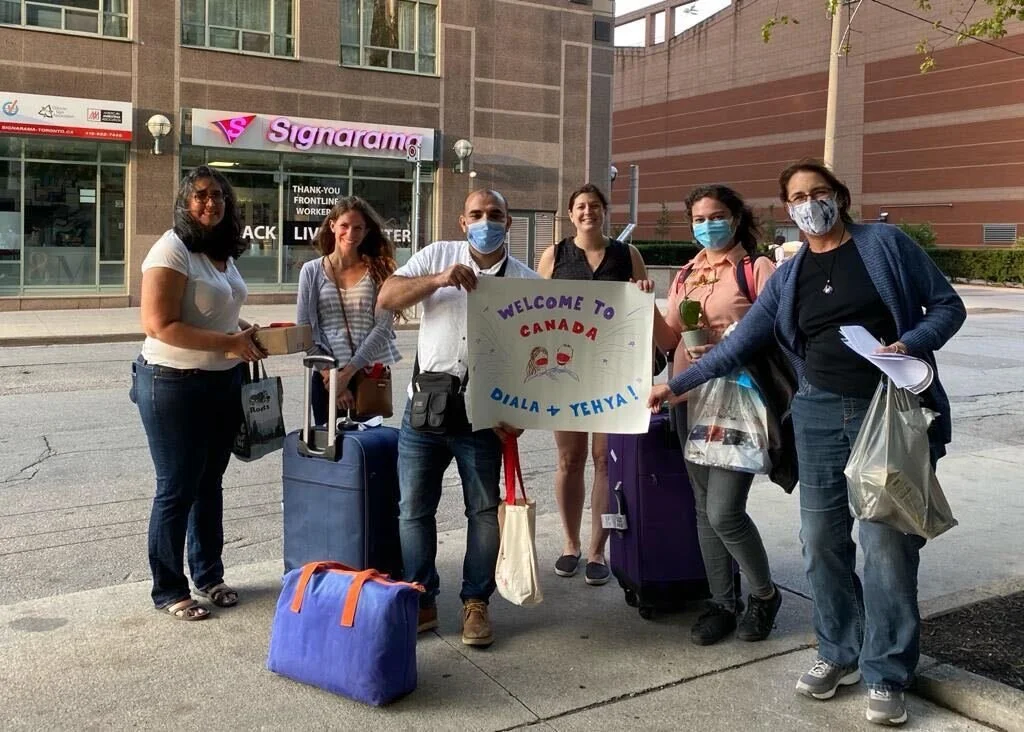Measuring impact in Canada: Relocations, income, and engaged communities
Read the full impact snapshot here.
Diala and Yehya arrived in Toronto from Beirut in September. The couple, both nurses with experience in emergency and critical care, arrive at a time of near-unprecedented demand in healthcare across Canadian communities. They’re here for nursing aide roles with a non-profit long-term care provider and will serve some of the area’s most vulnerable people. They leave a city recently devastated by an explosion and with living conditions still worsening under financial, political, and health crises - where they spent their lives as refugees without equal rights or treatment.
Moving to Toronto “has given me the ability to pursue better life possibilities,” said Diala. It’s a “massive transformation.”
Each candidate who relocates from displacement has an incredible story behind and ahead of them, and that storyline probably gets closest to showing the impact we all achieve when refugees can move for work.
In simpler terms, metrics can help tell these stories. We developed a quarterly impact snapshot beginning with our work in just one destination, Canada, and here are some of our favourite measures of impact.
22 people relocated to Canada with 61 people just behind
By the end of the third quarter, 22 people had relocated to Canada from displacement for work using skilled visa pathways. They include almost even numbers of men (8) and women (7) as well as boys (4) and girls (3). Another 61 people were behind them at different stages in a visa processing pipeline.
Seven of this group relocated to Canada during the pandemic. This is possible because Canada’s travel exemptions include those moving for essential work. TBB candidates are typically hired into essential sectors without enough local talent to meet demand such as healthcare, manufacturing, tech, and food services. Although the pandemic has impacted visa processing for different reasons, including reduced capacity at Canadian Embassies, critical skills are still moving to support Canadian industry and communities.
Diala and Yehya, nurses who were living as refugees in Lebanon, arrived in Toronto in September.
Average salary of over $49,000 jumping to over $64,000 in manufacturing
The average salary among candidates with a job offer in Canada is $49,000 Canadian Dollars. This jumps to over $64,000 for candidates with jobs in skilled trades across the manufacturing sector. This is an enormous increase compared to wages in displacement. Many candidates working with TBB, who live as refugees in Jordan and Lebanon before relocating, receive meagre pay typically far below their non-refugee peers. Many work informally so they can’t advocate for themselves or rely on local labour laws. In recent months some of our candidates living in Lebanon, a country in deep financial crisis, have stopped receiving pay altogether though they have stayed on the job in hopes of seeing their paycheque in future. You can imagine the difference of a Canadian income. When Canadian employers hire internationally, they must offer salaries that meet the median wage for the job and location. In addition to being fair and decent, initial incomes in Canada also represent a starting salary and some candidates have already seen a raise within their first year on the job.
Projected economic impact of $1.32 million
If we multiply the average salary across TBB candidates with job offers in Canada, the projected economic impact is over $1.32 million. Of course, that’s an imperfect way to calculate full value to an economy. There’s income that turns into spending as well as taxes to all levels of government. Just as importantly, there’s the expansion of firms and industries when new skills land into companies in need of talent. We know from studies like one by the Business Development Bank of Canada that when businesses face scarcity of skills they turn down contracts, become less competitive, and can even see the quality of their goods and services decline. So $1.32 million is just part of the big-picture win for Canada.
Community of over 7,000 team members engaged with displaced talent
The cumulative team size across companies partnering with TBB is over 7,000. This figure helps show the sheer reach of this work within a new private sector community, and the hearts and minds newly aware of individuals within the global refugee crisis. Many companies around the world that have hired TBB candidates have found value unexpectedly in the engagement, interest and support from their teams. Hiring from within refugee populations is about finding a skilled employee, but it’s equally about extending a life-changing opportunity to someone to transcend awful human circumstances. Employees at the companies recruiting displaced talent are proud to be part of something so important. One company shared an internal chat board with news of their hiring, where one employee wrote, “I am so proud of working [here] and knowing we support the people of the world who are skilled and just need an opportunity for a better life. As an immigrant from a country that has fallen into hardship this rocks my core. Thank you!”
143 people relocating globally
The Canadian picture is just part of the change TBB and our partners across government, the private sector, and NGOs are achieving. Globally, at the start of the third quarter, there were 143 people relocating from displacement to Australia, Canada, and the United Kingdom to rebuild their lives and careers. This new mobility option is growing as countries and the European Union make historic commitments to expand skilled pathways for talented refugees.
We’ll continue tracking this growth and the brilliant people behind it.
Reach out to us. Let us know other metrics or stories we should track and share: info@talentbeyondboundaries.org


